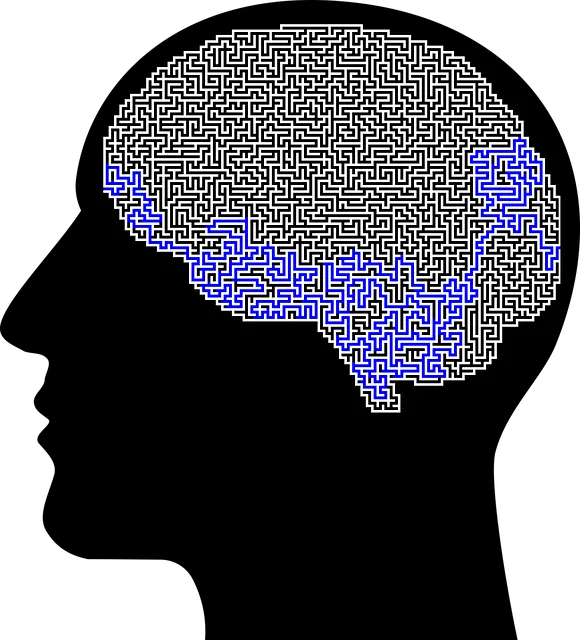Kaiser Permanente's comprehensive Kaiser Permanente mental health coverage in Parker aims to revolutionize care with advanced tools like the Parker Method, improving diagnosis accuracy and personalization. Initiatives include Cultural Competency Training and self-esteem programs, along with Mental Wellness Coaching for improved patient-provider communication. This holistic approach, driven by innovative assessment tools and tailored resources, destigmatizes mental illness and empowers individuals under Kaiser Permanente's Parker mental health coverage, ultimately enhancing community mental well-being.
Mental illness diagnosis accuracy is a critical aspect of patient care, and continuous efforts are underway to enhance it. This article explores innovative strategies, focusing on the comprehensive Kaiser Permanente mental health coverage and the Parker Method, a game-changing approach to diagnosis. We delve into the challenges faced in diagnosing mental illnesses and highlight advanced assessment tools and techniques. Additionally, ensuring cultural sensitivity and patient-centered care is crucial for accurate diagnoses, as demonstrated by successful implementations within Kaiser Permanente’s framework and the Parker Method.
- Understanding the Kaiser Permanente Mental Health Coverage: A Comprehensive Overview
- The Parker Method: Revolutionizing Diagnosis Accuracy in Mental Health
- Challenges in Diagnosing Mental Illnesses: Overcoming Barriers
- Implementation of Advanced Assessment Tools and Techniques
- Ensuring Cultural Sensitivity and Patient-Centered Care for Accurate Diagnoses
Understanding the Kaiser Permanente Mental Health Coverage: A Comprehensive Overview

Kaiser Permanente, a renowned healthcare provider, offers a comprehensive mental health coverage program designed to improve access and quality of care for its members. This initiative focuses on various aspects, including expanding services, integrating care models, and promoting public awareness campaigns. The organization recognizes the importance of addressing mental health issues early and effectively.
One key element is the implementation of Cultural Competency Training, ensuring that their healthcare providers are equipped to offer sensitive and tailored support to a diverse range of patients. Additionally, Kaiser Permanente emphasizes the role of self-esteem improvement programs in empowering individuals to manage their mental well-being. By combining these strategies with ongoing public awareness campaigns, they aim to destigmatize mental illness, encourage early intervention, and ultimately enhance overall community mental health.
The Parker Method: Revolutionizing Diagnosis Accuracy in Mental Health

The Parker Method represents a significant advancement in the quest for enhancing mental illness diagnosis accuracy. Developed by renowned researchers, this innovative approach leverages advanced assessment tools and techniques to ensure more precise and personalized evaluations. By integrating emotional intelligence and self-care practices into the diagnostic process, the Parker Method goes beyond traditional methods, which often rely solely on patient reports and symptoms. This holistic perspective considers not just symptoms but also how individuals manage their emotions and engage in mindfulness meditation, providing a more complete picture of their mental health status.
Kaiser Permanente, recognizing the potential impact on mental health coverage and care outcomes, has embraced the Parker Method as part of its comprehensive approach to healthcare. By integrating this method into their services, Kaiser Permanente aims to improve diagnosis accuracy, leading to more effective treatment plans tailored to individual needs. This shift in focus from symptom-based assessments to encompassing emotional intelligence and self-care practices promises to revolutionize mental health care, ultimately fostering better outcomes for those seeking support.
Challenges in Diagnosing Mental Illnesses: Overcoming Barriers

Diagnosing mental illnesses accurately is a complex task due to the diverse nature and often subtle manifestations of various conditions. The process involves sifting through a range of symptoms, which can be challenging as they may overlap between disorders or vary significantly from person to person. This complexity is further compounded by the fact that many individuals struggle to communicate their experiences effectively, either due to fear, stigma, or a lack of understanding.
Efforts to enhance diagnosis accuracy are multifaceted. Organizations like Kaiser Permanente are recognizing the importance of comprehensive mental health coverage and integrating innovative approaches. One such initiative includes implementing Mental Wellness Coaching Programs that empower individuals with coping skills development and improve communication strategies with healthcare providers. These programs aim to bridge the gap between patients’ experiences and professional understanding, ultimately leading to more precise diagnoses and effective treatment plans.
Implementation of Advanced Assessment Tools and Techniques

The implementation of advanced assessment tools and techniques is revolutionizing mental health care, with organizations like Kaiser Permanente leading the charge in Parker and beyond. By integrating cutting-edge technologies and evidence-based practices, healthcare providers can achieve greater accuracy in diagnosing mental illnesses. This involves utilizing sophisticated algorithms that analyze vast amounts of data, including patient history, symptoms, and physiological markers, to offer more precise evaluations.
These tools not only enhance diagnostic accuracy but also facilitate personalized treatment plans. For instance, digital assessment platforms can provide tailored recommendations for Self-Care Routine Development for Better Mental Health, incorporating Empathy Building Strategies as part of the Emotional Healing Processes. This comprehensive approach ensures patients receive targeted support, improving overall mental health outcomes and well-being.
Ensuring Cultural Sensitivity and Patient-Centered Care for Accurate Diagnoses

At Kaiser Permanente, mental health coverage is a cornerstone of their comprehensive healthcare services. They recognize that providing culturally sensitive care is essential for accurate diagnoses and effective treatment plans. This involves understanding and respecting patients’ diverse backgrounds, beliefs, and experiences, especially when dealing with mental illness. For instance, the organization has developed resources and guidelines tailored to specific cultural groups, ensuring that every patient receives personalized support.
By integrating these cultural sensitivity practices, Kaiser Permanente aims to reduce the stigma associated with mental health issues, a significant barrier in many communities. They also offer Crisis Intervention Guidance and Trauma Support Services, recognizing that past traumatic experiences can significantly impact an individual’s mental health diagnosis and treatment outcomes. This patient-centered care approach ensures that every individual receives respectful, empathetic, and evidence-based care.
The pursuit of accurate mental illness diagnoses is a multifaceted endeavor, necessitating an integration of advanced assessment tools, cultural sensitivity, and patient-centric care. As evidenced by Kaiser Permanente’s comprehensive mental health coverage and the revolutionary Parker Method, continuous efforts to improve diagnosis accuracy are transforming the landscape of mental healthcare. By overcoming challenges through innovative techniques and ensuring inclusive practices, the field moves closer to providing effective, personalized treatments, ultimately enhancing patient outcomes.






